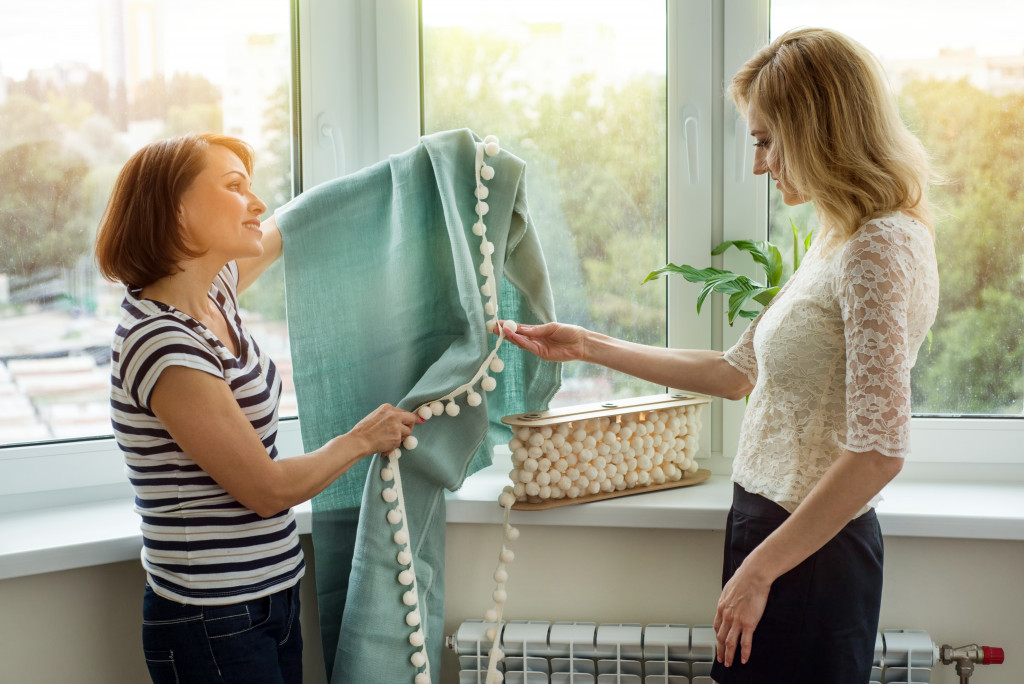Popular reality TV shows like The Home Edit, Dream Home Makeover, and Tidying Up with Marie Kondo made many people interested in interior design. Viewers now fancy themselves capable of transforming any outdated space into something more aesthetically pleasing and modern—and there’s nothing wrong with believing in one’s capabilities. But interior design takes so much work and, in some states, requires a license.
If you love interior design but don’t necessarily want to become an interior designer, here are some potentially profitable businesses that are somewhat related to that industry.
Home design or interior decorating
Contrary to popular belief, interior design and interior decorating are two completely different things. There is plenty of overlap between the two activities. Interior design has to do more with the property’s natural architecture and ensuring that interior spaces are functional and ergonomic. Meanwhile, home design or interior decorating focuses more on decor and styling.
In some states and other parts of the world, interior designers are held to the same standards as architects. They can also be held negligent and liable if something in the design goes awry or causes harm to the occupants.
If you only like the styling or decorating aspect of interior design and not necessarily the more technical discipline of drawing up blueprints, consider a business in home design or interior decorating. Doing so would allow you to immerse yourself in the more “fun” and lighter aspects of the job. That can be decorating and choosing furniture pieces and decorative elements. Then, you can leave the more technical aspects to those who studied it for years and have the license to practice it.
Franchise opportunities
Another interior design-related business idea you can explore is a garage store franchise opportunity or something along the lines of home improvement. Reputable franchises can make it easier for upstart entrepreneurs to build something.
Franchises already have a brand reputation, a viable and transferable business model, the resources needed to support up-and-coming businessmen and women. Suppose you love the idea of home improvement and helping homeowners give their homes a much-needed refresh, but the idea of starting a business from scratch intimidates you. In that case, a franchise opportunity might be the best fit.

Professional organizer
This business concept recently made waves thanks to reality TV shows like The Home Edit and even Hoarders, the iconic show that preceded it. There is now a thin line between organizing and home design. This niche has plenty of demand, especially as people are growing more conscious of how their lifestyle choices and purchasing habits impact their well-being and the environment.
If you enjoy cleaning and seeing how a space can be improved with the proper storage solutions, a professional organizing business might be for you. To set yourself apart, you can cater to specific target markets and extend help however they need it. Here are some examples of market segments you can explore:
- College students who don’t have the time or energy to reorganize their dorms
- Families with little kids or newborns
- Pet owners
- Disabled homeowners who may not have the physical or mental capacity to do some organizing
- Homeowners who have just moved to a new place
There are plenty of market segments you can focus on, but you don’t have to prioritize just one because you don’t want to decrease your income and opportunities. Just make sure to include in your promotional materials that there are no bounds to your organizing and cleaning skills, and use social media to share stories of your most memorable before-and-after moments. Just don’t forget to ask your clients for permission!
Design consulting
Suppose you have a knack for knowing what looks good in a space, but you don’t necessarily want to draw up layouts or find pieces for your clients. You can then start a design consulting business. Your job would only be limited to providing clients with design ideas and looks instead of being paid by the hour.
Additionally, most interior design businesses have tie-ups with specific brands and products. This means they use these partnerships to sell products and pieces to clients. As a design consultant, you wouldn’t have to be tied to particular companies. You would only be giving your clients ideas and concepts, not actual designs and drawings.
We live in a time when most homeowners want their homes to be the best they can be. There is plenty of demand for home transformation businesses, so explore what area or niche will allow you to leverage your unique point of view and set of skills.

